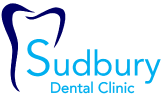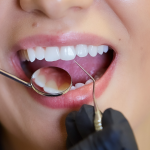The Oral Health Benefits of Chewing Sugar-Free Gum
Just by incorporating sugar-free gum into your daily routine, you can significantly enhance your oral health. Chewing sugar-free gum stimulates saliva production, which helps neutralize acids produced by bacteria in your mouth, effectively reducing your risk of cavities and gum disease.
Additionally, this simple habit can aid in freshening your breath and promoting a healthier overall oral environment. Discover how making this small change can lead to substantial benefits for your dental well-being.
Key Takeaways:
- Chewing sugar-free gum stimulates saliva production, which helps neutralize acids, reduce the risk of cavities, and support enamel remineralization.
- Sugar-free gum can aid in reducing plaque buildup and promoting overall oral hygiene when used as a supplement to regular brushing and flossing.
- Chewing gum can also provide fresh breath, making it a convenient option for maintaining oral freshness throughout the day.
The Science Behind Chewing Gum
Your understanding of the science behind chewing gum can enhance your oral health routine. Chewing gum stimulates saliva production, which helps wash away food particles and neutralizes acids produced by bacteria in your mouth.
This increased saliva flow can assist in preventing tooth decay and maintaining oral hygiene. Additionally, the act of chewing keeps your jaw muscles active, promoting overall dental health.
Sugar-Free vs. Sugary Gum
Behind the benefits of chewing gum lies a critical distinction: sugar-free versus sugary gum. Sugar-containing gum can contribute to tooth decay, whereas sugar-free options offer a healthier alternative that promotes oral health.
By choosing sugar-free gum, you reduce the risk of cavities while enjoying the same satisfaction of chewing.
Role of Xylitol and Other Sweeteners
After understanding the differences, it’s necessary to explore the role of xylitol and other sweeteners in sugar-free gum. These ingredients are beneficial for your teeth and help inhibit the growth of harmful bacteria in your mouth.
Xylitol, in particular, helps reduce levels of Streptococcus mutans, a cavity-causing bacterium, thereby promoting overall dental health.
“When choosing sugar-free gum, look for xylitol as a key ingredient—it not only fights cavity-causing bacteria but also disrupts bacterial growth cycles, offering a double layer of protection for your teeth.” – Dr. Khaja Siddiqui
It’s important to note that xylitol is a natural sugar alcohol that offers significant benefits for oral health. Not only does it help in preventing cavities by reducing harmful bacteria, but it also encourages the remineralization of tooth enamel.
Additionally, other sweeteners, like sorbitol and mannitol, serve a similar purpose without the harmful effects associated with sugar. Incorporating gum with xylitol into your routine can be a simple yet effective strategy for maintaining a healthy mouth.
Saliva Production and Its Importance
One of the key roles of saliva in your mouth is to aid in the digestion process and maintain oral health. Saliva helps to neutralize acids produced by bacteria in your mouth, reducing the risk of tooth decay and gum disease.
Additionally, saliva contains essential minerals such as calcium, phosphate, and bicarbonate, which are vital for protecting and remineralizing tooth enamel. When saliva production decreases, you may experience dry mouth, which can lead to various oral health issues, highlighting the importance of keeping saliva levels optimal.
How Chewing Gum Stimulates Saliva Flow
Below, you’ll discover that chewing sugar-free gum effectively stimulates saliva flow. The act of chewing enhances oral muscle movement and triggers your salivary glands to produce more saliva.
This increased saliva helps wash away food particles, neutralize acids, and keep your mouth feeling fresh, ultimately contributing to better oral hygiene.
Benefits of Increased Saliva in Oral Health
Flowing saliva provides numerous benefits for your oral health. With increased saliva production, you help create a natural defense against cavities and gum disease.
“Saliva is your mouth’s natural repair system—it neutralizes harmful acids and replenishes essential minerals that make your enamel stronger and more resistant to decay.” – Dr. Khaja Siddiqui
The saliva washes away food particles and bacterial plaque from your teeth, making it a crucial component in maintaining oral hygiene. Furthermore, saliva aids in remineralizing enamel, fortifying your teeth against decay and helping prevent the onset of conditions like tooth sensitivity and bad breath.
It’s clear that keeping your mouth moist with optimal saliva levels is imperative for overall dental wellness.
Stimulating saliva production combats issues like dry mouth and enhances health in various ways. When you chew sugar-free gum, the increased saliva flow helps flush away harmful bacteria and food debris, reducing the risk of plaque buildup.
Saliva is also rich in imperative minerals that contribute to the rebuilding and strengthening of tooth enamel. Maintaining a healthy level of saliva in your mouth is vital in preventing oral infections and promoting a brighter, healthier smile.
By integrating sugar-free gum into your routine, you take a proactive step toward better oral health.
Plaque Reduction and Tooth Decay Prevention
For maintaining your oral health, chewing sugar-free gum can significantly reduce plaque buildup and prevent tooth decay. The act of chewing stimulates saliva production, which helps neutralize acids produced by bacteria in your mouth.
“A healthy flow of saliva does more than just rinse your mouth—it also carries important enzymes and minerals that bolster your teeth’s defenses against decay, making it one of the most effective natural tools for oral hygiene.” – Dr. Khaja Siddiqui
This increased saliva flow washes away food particles and contains minerals that can strengthen your enamel, providing a natural defense against cavities.
Mechanisms of Action in Plaque Control
The process by which sugar-free gum aids in plaque control involves several mechanisms. Chewing gum increases saliva production, which dilutes and washes away harmful bacteria and food debris.
Saliva is rich in bicarbonate, calcium, and phosphate that help to remineralize enamel and inhibit the growth of acid-producing bacteria. By engaging in this simple habit, you can effectively reduce the chances of plaque formation on your teeth.
Evidence from Recent Studies
A recent meta-analysis highlighted that chewing sugar-free gum for at least 20 minutes after meals can significantly decrease plaque formation. Studies have shown that participants who incorporated sugar-free gum into their oral hygiene routine experienced a significant decrease in plaque accumulation compared to those who did not.
A 2020 meta-analysis and FDI World Dental Federation report indicated that chewing sugar-free gum for 20 minutes after meals can significantly reduce plaque formation and support enamel remineralization. Participants demonstrated a *notable reduction* in both plaque scores and cavity development.
The studies suggested that the increase in saliva not only decreases acidity but also assists in the *remineralization of enamel*, reinforcing your teeth’s defense against decay. By choosing to chew sugar-free gum regularly, you can enjoy a *healthier mouth* and *minimize your risk* of dental issues.
Freshening Breath and Its Impact on Confidence
Many individuals underestimate the power of fresh breath in enhancing their social interactions. When you have fresh breath, you feel more at ease, allowing you to speak confidently and engage with others without the fear of unpleasant odors affecting their perception of you.
This added confidence can significantly improve your personal and professional relationships.
How Gum Affects Breath Odor
On chewing sugar-free gum, you activate your salivary glands, producing saliva that helps wash away food particles and neutralize acids in your mouth. This action not only combats bad breath but also contributes to the overall cleanliness of your mouth, leaving a pleasant flavor that lingers long after you’ve finished chewing.
Psychological Benefits of Fresh Breath
Behind having fresh breath lies a host of psychological advantages. When you know your breath smells good, you’re more likely to engage in conversations, smile more, and project a positive self-image. This self-assured demeanor can foster stronger connections with others, contributing to a more fulfilling social life.
And as you cultivate fresh breath, you pave the way for enhanced self-esteem and social interactions. Surveys suggest that individuals who perceive their breath as fresh report greater confidence and comfort in social situations.
Moreover, frequent gum chewing can become a positive habit that reinforces your commitment to maintaining good oral hygiene, further boosting your confidence in various settings.
Chewing Gum and Oral Hygiene Habits
All your oral hygiene routines can be complemented by chewing sugar-free gum. This simple habit can help reduce plaque buildup, enhance saliva production, and neutralize harmful acids in your mouth. Moreover, when used alongside regular brushing and flossing, sugar-free gum can further promote a healthier oral environment, ultimately contributing to reduced risk of cavities and gum disease.
Supplementing Regular Dental Care
For optimal oral health, incorporating sugar-free gum into your daily routine can supplement your regular dental care. While it should never replace brushing and flossing, chewing gum can effectively aid in cleaning teeth and freshening breath between these important practices.
Opt for products containing xylitol, as this ingredient actively helps reduce harmful bacteria in your mouth.
Encouraging Healthy Habits in Children
Before introducing chewing gum to your child, consider its potential benefits in promoting oral hygiene. Chewing sugar-free gum can reinforce positive dental habits, turning a fun activity into a learning opportunity.
This can help keep your child’s smile healthy while motivating them to develop a routine that emphasizes dental care.
Supplementing your child’s oral hygiene routine with sugar-free gum can instill *healthy habits* early on. By offering gum after meals, you can teach them the importance of maintaining oral cleanliness while making it enjoyable.
This small change can lead to a lifetime of *good practices*, helping to reinforce that good oral health doesn’t have to be a chore but can be fun and rewarding instead.
Potential Drawbacks and Considerations
Unlike other oral care methods, chewing sugar-free gum may come with some drawbacks that should not be overlooked. Frequent gum chewing can lead to jaw discomfort or exacerbate conditions like temporomandibular joint disorder (TMJ).
It’s important to be aware of the potential impact on your oral and overall health, particularly if you have existing jaw or dental issues, which could be aggravated by excessive use of gum.
Possible Side Effects of Excessive Chewing
An increase in the amount of time you spend chewing gum can lead to side effects such as jaw pain, headaches, and gastrointestinal discomfort. Excessive chewing can strain the muscles around your jaw, potentially worsening symptoms of temporomandibular joint (TMJ) dysfunction and causing headaches or tension.
It’s important to balance gum chewing with other oral health practices to avoid these complications.
Recommendations for Safe Gum Chewing
For a safe and enjoyable gum-chewing experience, limit your consumption to a moderate amount each day. Chewing sugar-free gum for about 20 minutes after meals can be beneficial for your oral health, while extended chewing sessions should be avoided to prevent jaw strain.
Due to the potential side effects of excessive gum chewing, you should aim to limit your intake to short periods throughout the day. Choosing sugar-free varieties aids in cavity prevention, but it’s best to chew for no more than 20 minutes at a time, up to a few times per day, to prevent jaw strain.
If you start experiencing jaw pain or discomfort, consider reducing your intake and consult a dental professional for personalized advice. By following these guidelines, you can enjoy the oral health benefits of sugar-free gum while keeping potential issues at bay.
To wrap up
With these considerations, incorporating sugar-free gum into your oral health routine can provide significant benefits. Not only does it help in reducing plaque and preventing cavities, but it also promotes saliva production, which is crucial for maintaining a healthy mouth.
By choosing sugar-free options, you can enjoy the refreshing flavor while actively contributing to your oral hygiene. So, the next time you chew gum, consider its impact on your dental health and make it a beneficial addition to your daily habits.
Chewing sugar-free gum is just one way to support your oral health — but regular dental checkups are essential too. If you have questions about your oral hygiene routine or want Our friendly team at Sudbury Dental Clinic is here to provide personalized recommendations and help you. Contact us today to book your appointment and keep your smile in top shape!
Reviewed by: Dr. Khaja Siddiqui
 Call Us
Call Us 



